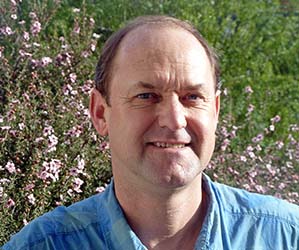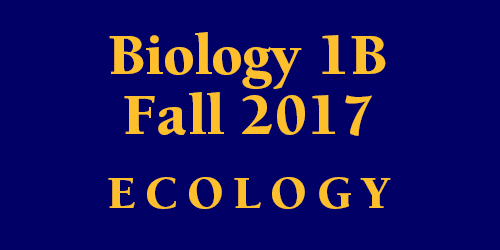 |
 | ||||
|
Office Hours: To be announced E-mail: dackerly@berkeley.edu In the Ecology section of this course, we will explore spatial and temporal variation in Earth's environments, how plants, animals and microbes respond to and affect this variation, and how webs of the direct and indirect interactions linking biota and physico-chemical factors manifest as "ecosystems". We will study species interactions, including competition, predation, parasitism, mutualism, and indirect interactions mediated through webs. We will look at how the study of ecology can inform us about environmental consequences of land and water use, climate change, population growth, and other important topics we hear about in the news every day. | |||||